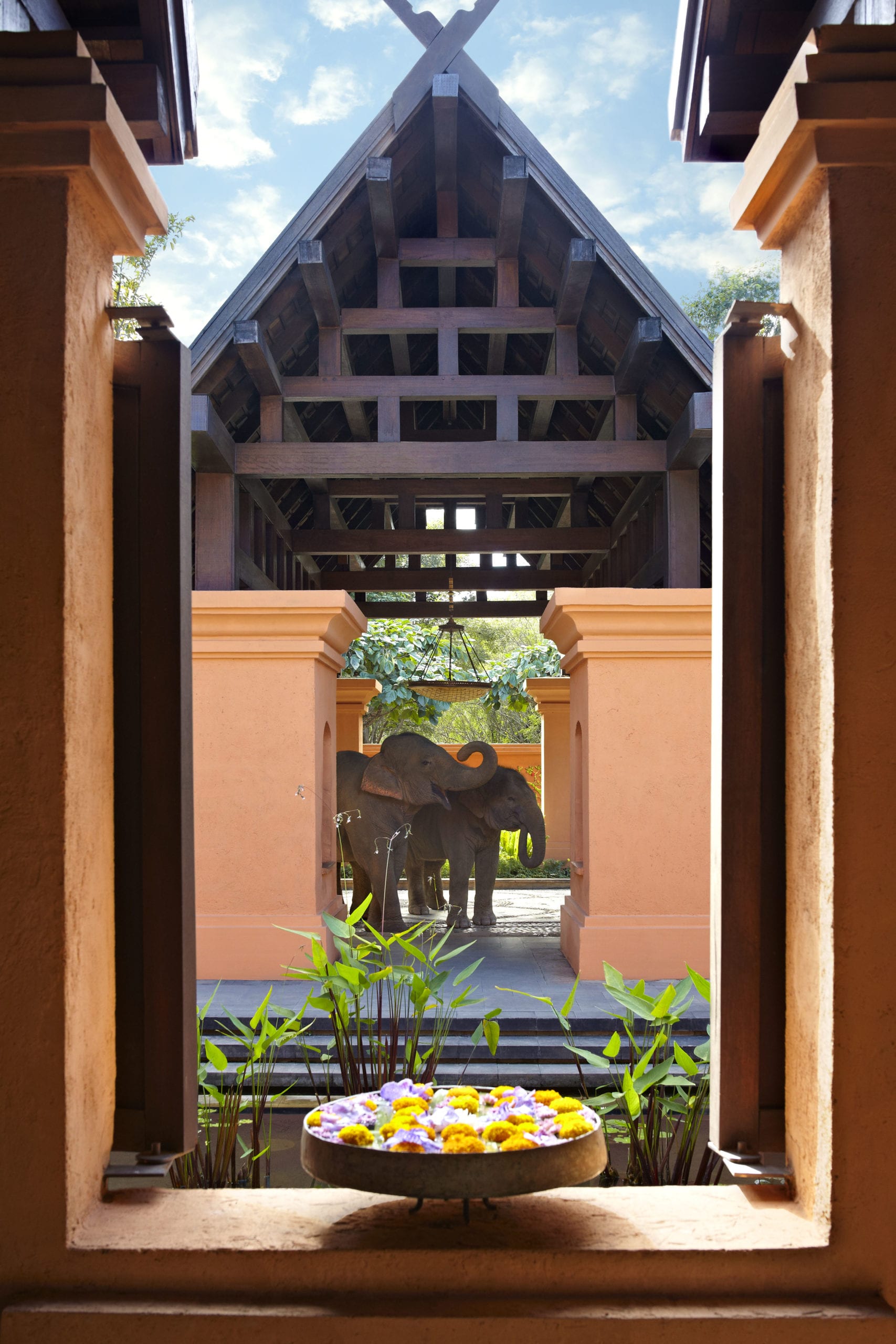If you’re looking for a very unique outdoor adventure experience, we think we’ve found something you’ll like. In a jungle in Thailand, you can sleep in a bubble in the midst of freely roaming elephants.
These extraordinary accommodations are called “Jungle Bubbles,” and are only found at the Anantara Golden Triangle Elephant Camp & Resort in Northern Thailand.
In each 236-square-foot bubble equipped with air-conditioning, you’ll find a king-size bed, a living area and a bathroom. Apart from the bathroom, the rest of the bubble is transparent. Staff drop off your dinner in a basket, so all you have to worry about is enjoying the majesty of 22 elephants.
Rescued from the country’s cities and tourist attractions, the elephants are set to live out the rest of their days roaming freely and peacefully. Visitors can learn more about them by taking a tour led by a veterinarian or a biologist called “Walking with Giants.”
Etienne De Villiers, Anantara’s cluster director of public relations, told Apartment Therapy,
“Guests can observe the elephants’ social interaction in their native habitat.
The fun of either a river bath or mud playtime demonstrates just how cheeky these graceful animals can be.”
The company’s founder saw an elephant begging for food in the streets of Bangkok and decided to start the Golden Triangle Asian Elephant Foundation.
Said De Villiers,
“Since then we have operated a rescue rental system that gives entire traditional mahout families a sustainable income from an elephant that is already living with them — this ensures that they will not source, through breeding or wild capture, another elephant to continue their traditional way of life.”
Journey into the jungle with elephants, and marvel at the bond between yourself and their mighty spirits  . Book your…
. Book your…
Posted by Anantara Hotels Resorts & Spas on Monday, September 10, 2018
More than 60 elephants have been rescued. Mahout families also receive English lessons, further education for their children and all proceeds from clothing sales of a traditional silkworm business.
This is the type of responsible and sustainable tourism that benefits people, animals and society.
Let’s expand our horizons and do more of THIS!
The post You Can Sleep in a Bubble Surrounded by Rescue Elephants in a Thai Jungle appeared first on UberFacts.


 . Book your…
. Book your…